Squash is a favorite when it comes to fall cuisine. Versatile and easy to prepare, they can be included in both sweet and savory dishes.
But is squash a fruit or vegetable?
It comes in many varieties. Some are more popular than others, but all have their own unique flavor, texture and nutritional value.
But before you prepare it for Thanksgiving, are you cooking a fruit or a vegetable?
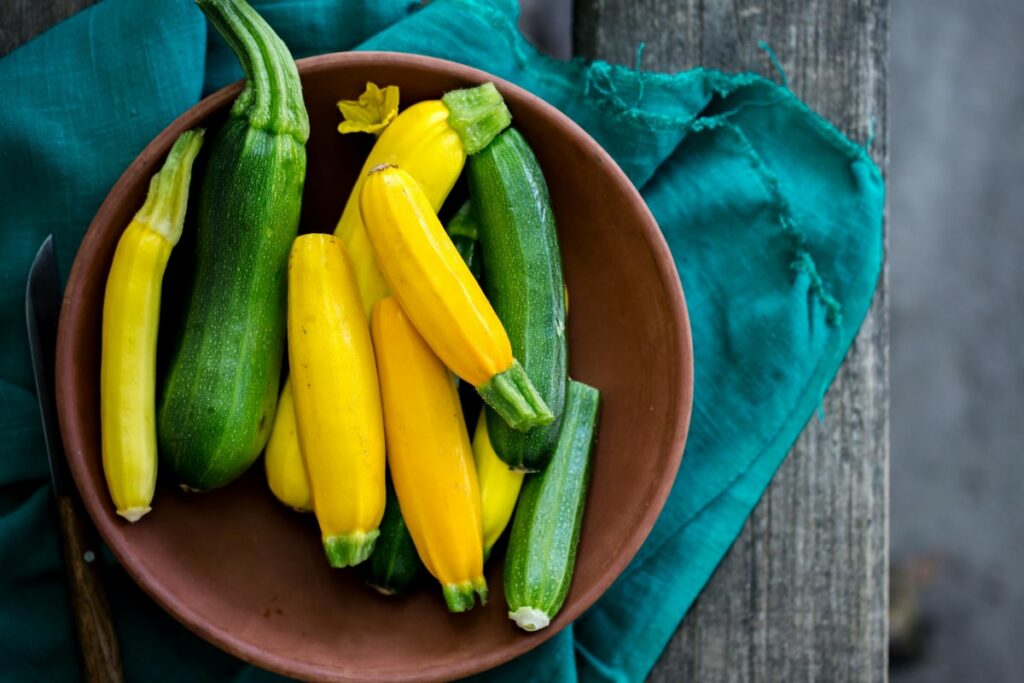
Is Squash a Fruit or a Vegetable?
Botanists classify the many varieties of squash as a fruit. Whether pumpkin, butternut, or acorn squash, they’re all botanically classified as fruit. Not everyone agrees with its vegetable classification, so some will say it’s a vegetable. Nonetheless, the Cucurbita genus and its many varieties are a fruit that belongs to the Cucurbitaceae family.
Let’s look into the argument for why some consider squash a fruit and why some consider it a vegetable.
Squash is a Fruit
When you think of fruit, apples, berries, and oranges come to mind. Fruits are classified as such because they contain seeds inside and grow from a plant’s flowers. Vegetables do not grow from the flower and are from the other parts of the plant. Vegetables will have seeds that are separate from the parts eaten.
Botanists define squash as a fruit because they contain internal seeds. Squash also develops from flowers known as squash blossoms. They feature thick skins and fleshy meat inside just like melons.
When you open a squash variety, such as a pumpkin, it is filled with seeds and stringy flesh. Hence, when you prepare or eat squash, you are cooking or eating fruit.
Squash varieties are members of a group of fruits that pose as vegetables, such as tomatoes and avocados.
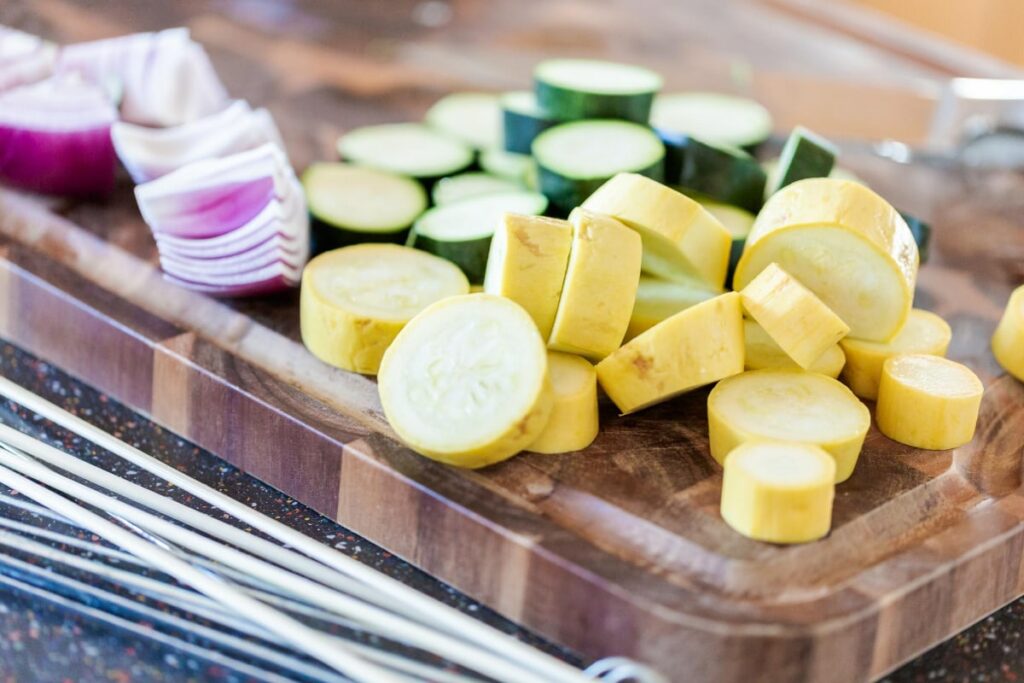
Squash Is a Vegetable
If you consider squash a vegetable, this is entirely logical. We can also differentiate vegetables and fruit in terms of their culinary uses.
Squash is commonly thought of as a vegetable because of its culinary use. Vegetables are generally used in savory dishes as a side dish, or as the basis for vegetarian fare. They are recognized by botany as the edible parts of a plant, including roots, leaves, and stems of plants.
Squash is most often prepared using salt, pepper, and spices as dinner or lunch food. Vegetables are very rarely used in sweet fare.
Except for pumpkin pie at Thanksgiving, we eat more squash varieties in savory dinner or lunch dishes, than in sweets.
What Are Some Squash Varieties?
Within the Cucurbita genus there are 5 main squash varieties:
- The Maxima which includes banana squash, buttercup squash, winter squash and several pumpkins.
- The Argyrosperma which includes cushaw pumpkin.
- The Moschato species which features varieties of butternut squash.
- The Pepo which includes winter squash and pumpkin.
- The Ficifolia featuring fig-leaf gourd.
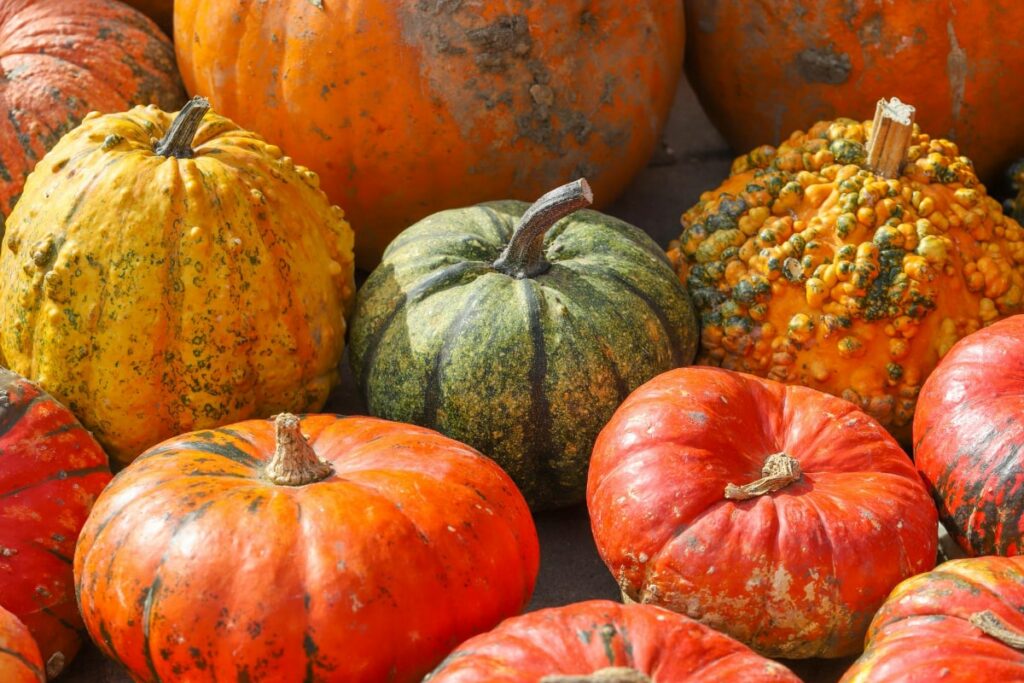
Squash Health Benefits
Squash contains antioxidants, minerals, and vitamins that all provide health benefits.
1. Squash Aids in Cancer Prevention
The antioxidants in squash play an important part in the reduction of free radicals. Free radicals cause oxidative stress. This not only aids in preventing chronic diseases, but contributes to cancer prevention.
2. Squash Improves Eye Health
Squash contains beta-carotene and vitamin C. These two elements aid to slow macular degeneration, a disease linked to aging. It will also aid in reducing the risks of related loss of vision. Vitamin C contributes to cataract prevention.
3. Squash Reduces Depression Risk
Several squash varieties are rich in vitamin B6. People that suffer from a deficiency of B6 may have a higher risk of mental health issues.
4. Squash Improves Skin Health
The beta-carotene in squash is an important element in skin protection. It will protect the skin from exposure to sun rays. It’s not a substitute for sunscreen though. The reduction of UV rays will improve skin health and appearance.
5. Squash Contributes to Overall Health
Squash contains many vitamins and minerals that contribute to nutrition. It helps to reduce cholesterol levels and prevent heart problems. It improves blood pressure and reduces inflammation. Squash also has high quantities of fiber which assists digestion.
Squash contains these vitamins and minerals:
- Vitamin A
- Vitamin B6
- Vitamin C
- Calcium
- Magnesium
- Iron
A more specific example, one cup of raw butternut squash contains 63 calories and these nutrients:
- 1 gram of protein
- less than a gram of fat
- 3 grams of fiber
- 3 grams of sugar
- 16 grams of carbohydrates
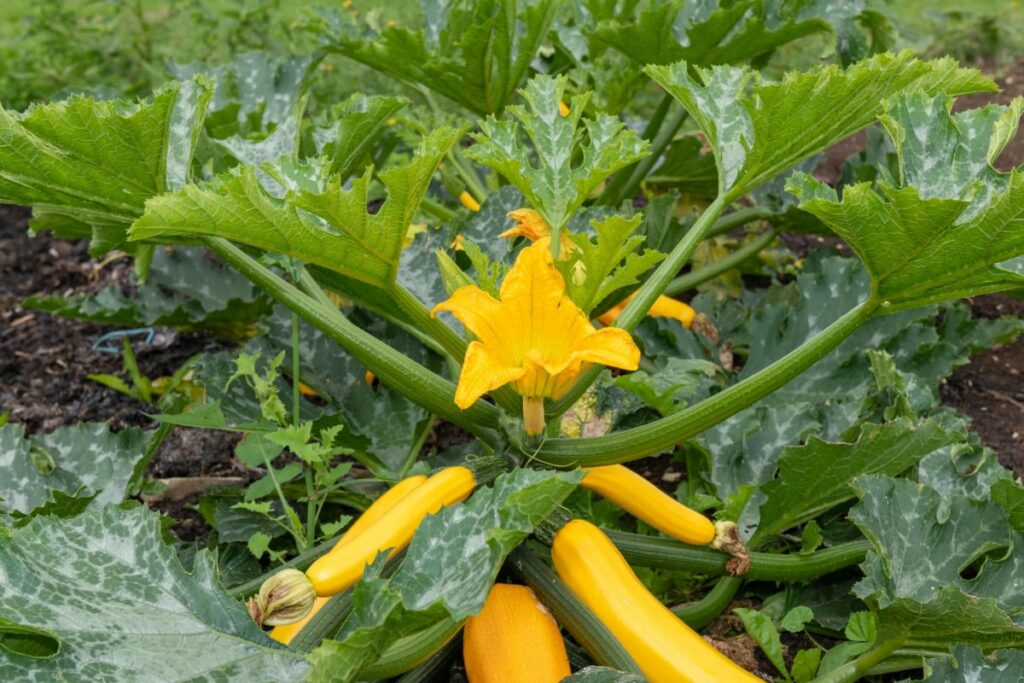
How to Add Squash to Your Diet
Squash can be prepared and consumed in many ways. The entire squash plant can be consumed including foliage, skin, flowers, flesh, and the seeds. It is easy to find year-round at your local grocery store too.
Winter squash includes acorn, butternut, delicata, hubbard, and pumpkin varieties. It is mainly available from autumn to spring. The skin can be in green, orange, or yellow hues with inner flesh in variations of orange and yellow.
These varieties of flesh are generally roasted, steamed, or boiled and seasoned with herbs and butter or olive oil. You can roast seeds with olive oil and salt and serve as a snack.
Summer squash includes zucchini and crookneck varieties. It is in season from June through September. Summer squash will have green or yellow skin with white inner flesh.
- Related article: Is Zucchini a Fruit or Vegetable?
You can prepare these by sautéing, grilling, or roasting with garlic and oil. You can also add it to muffins and sweet breads. Some people will even spiralize summer squashes and use them as a substitute for noodles.
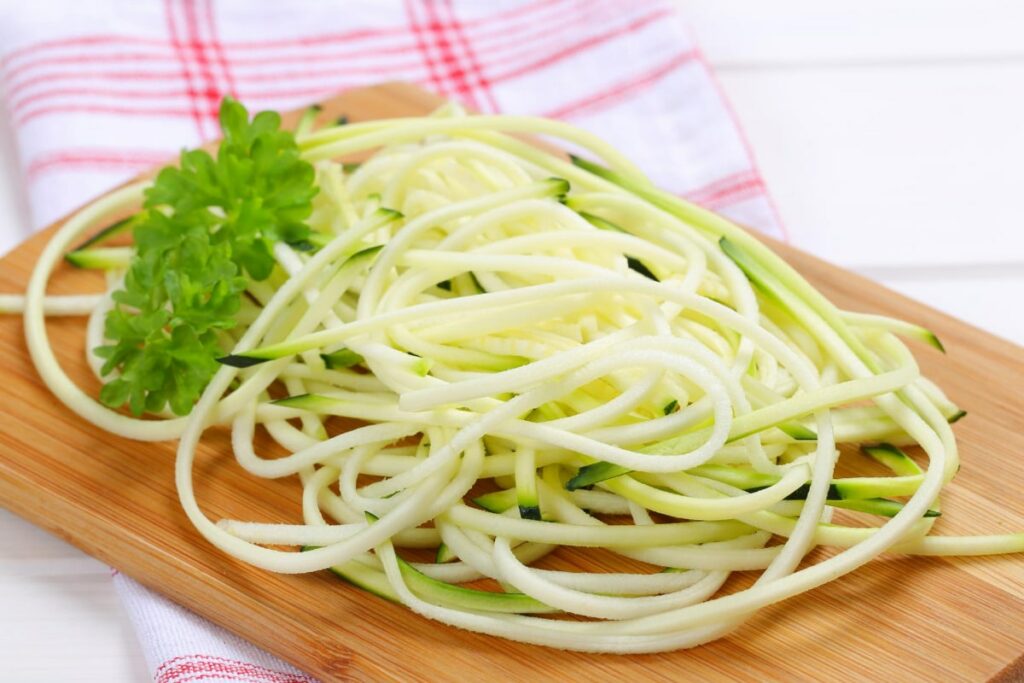
Is Squash Fruit or Vegetable? Final Thoughts
Squash is a fruit because it grows on a vine and has seeds. However, it is also classified as a vegetable because of its culinary uses and its savory flavor. This article explains why squash is both a fruit and a vegetable.
Learn more about other plants and whether they’re considered a fruit or vegetable:

